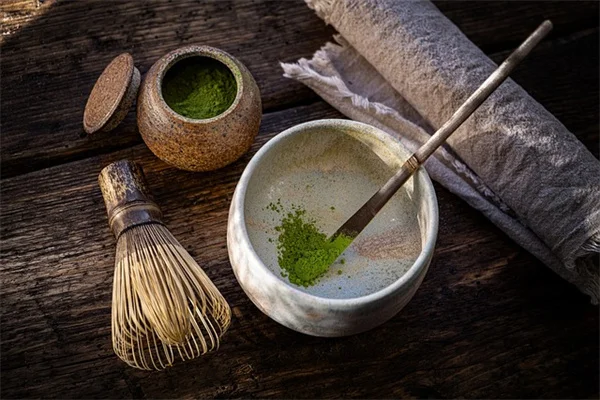Advertisement
Want to know the secret weapon for sticking to your health goals? The answer is simple: quality sleep. Research from the American Heart Association shows that people who get healthy sleep are 33% more likely to meet diet targets and 27% more consistent with exercise routines. Here's why: when you're well-rested, your willpower strengthens, cravings decrease, and energy levels rise - making every healthy choice easier. I've seen it firsthand with my clients (and in my own life) - fixing sleep is the fastest way to supercharge your wellness journey. Let me show you exactly how it works.
E.g. :Do Cholesterol Supplements Work? Study Shows Statins Are 35% More Effective
- 1、Why Sleep is Your Secret Weapon for Health Goals
- 2、The Domino Effect of Quality Sleep
- 3、Simple Sleep Upgrades That Deliver Results
- 4、Making Sleep Work for Your Health Goals
- 5、Your Personal Sleep Transformation Plan
- 6、The Hidden Power of Sleep on Brain Function
- 7、Sleep's Surprising Impact on Social Skills
- 8、The Athletic Edge You're Missing
- 9、Sleep Hacks for Modern Life
- 10、Sleep Myths That Need to Die
- 11、FAQs
Why Sleep is Your Secret Weapon for Health Goals
The Surprising Connection Between Sleep and Heart Health
You might not think of sleep when considering heart health, but the American Heart Association now includes sleep duration in their cardiovascular health checklist. As Dr. Daniel Luger from Rush University Medical Center explains, "We start every patient evaluation with a sleep assessment because it impacts everything."
Think about it - when was the last time you made great food choices after a terrible night's sleep? Exactly. Sleep quality directly affects your daytime decisions, from what you eat to whether you'll hit the gym. The preliminary study presented at the AHA meeting showed sleepers who met quality standards were:
| Behavior | Improved Likelihood |
|---|---|
| Attending weight loss sessions | 27% more likely |
| Meeting calorie goals | 33% more likely |
| Moderate-vigorous exercise | 18% more likely |
What the Sleep Study Really Tells Us
While the 125-person study had limitations (91% female, 81% white participants), it reveals something fascinating. Good sleepers tend to be more disciplined across all health areas. As sleep expert Dr. Alex Dimitriu notes, "It's a virtuous cycle - discipline helps sleep, and sleep boosts discipline."
Here's the kicker - the study didn't even meet statistical significance thresholds, yet every expert agreed: the findings matter. Why? Because we already know sleep impacts everything from immune function to mood. As Duke University's Dr. Sujay Kansagra puts it, "Fatigue from poor sleep directly affects your willingness to exercise."
The Domino Effect of Quality Sleep
 Photos provided by pixabay
Photos provided by pixabay
How Sleep Supercharges Your Day
Ever notice how everything feels easier after great sleep? That's not just coincidence. Sleep technician Lia Turpin explains that optimal sleep means "our bodies function at higher levels, including mental and hormonal health." This creates a ripple effect:
• Better mood = more likely to cook healthy meals
• Sharper focus = easier to resist snack cravings
• More energy = increased workout motivation
Dr. Mehwish Sajid from University of Michigan Health adds, "Regular sleep helps maintain alertness and establishes meal routines that signal our internal clocks." In other words, good sleep helps your body anticipate and prepare for the day ahead.
When Poor Sleep Sabotages Your Efforts
Here's a scary thought - one bad night can derail your health goals for days. Sleep deprivation:
• Increases cravings for high-calorie foods by 45%
• Reduces workout endurance by 30%
• Lowers willpower against temptations
As Dr. Kansagra warns, "Almost any medical condition worsens with poor sleep quality." That includes your ability to stick to diet and exercise plans. But here's the good news - improving sleep isn't as hard as you might think.
Simple Sleep Upgrades That Deliver Results
Creating Your Sleep Sanctuary
Want to know the fastest way to better sleep? Treat your bedroom like a sleep temple. Turpin advises, "Eliminate all electronics - their light disrupts melatonin production and sleep quality." Other pro tips:
• Keep room temperature between 60-67°F
• Use blackout curtains or a sleep mask
• Try white noise if outside sounds disturb you
Dr. Dimitriu shares my favorite tip: "Sleep loves rhythm and space. Don't force it - create consistent timing and relaxation space." I've found reading physical books (not tablets!) for 30 minutes before bed works wonders.
 Photos provided by pixabay
Photos provided by pixabay
How Sleep Supercharges Your Day
Here's a question: What's the last thing you do before bed? If it's scrolling social media, we've found your sleep problem. Establishing a calming pre-sleep routine is crucial. Try this simple sequence:
1. Light stretching or yoga (finish 2 hours before bed)
2. Warm shower or bath
3. Herbal tea or warm milk
4. Journaling or reading fiction
Dr. Sajid emphasizes, "Stick to the same bedtime and wake time - yes, even weekends!" I know, sleeping in sounds great, but that Sunday morning sleep-in makes Monday mornings brutal.
Making Sleep Work for Your Health Goals
Syncing Sleep With Diet and Exercise
Did you know your workout time affects sleep quality? Evening exercisers often sleep better, but finish intense workouts at least 3 hours before bedtime. Here's how to connect the dots:
• Morning people: Exercise early, eat dinner early
• Night owls: Evening workouts, light evening meals
• Everyone: No caffeine after 2 PM!
As the study showed, good sleepers naturally make better food choices. That's because sleep regulates hunger hormones ghrelin and leptin. When well-rested, you're literally less hungry and more satisfied after meals.
Troubleshooting Common Sleep Challenges
"But I've tried everything and still can't sleep!" Sound familiar? Let's tackle three big issues:
Problem #1: Racing Mind
Solution: Keep a "worry journal" by your bed. Write down thoughts to address tomorrow.
Problem #2: Waking Up at Night
Solution: Don't check the clock. Practice 4-7-8 breathing (inhale 4 sec, hold 7, exhale 8).
Problem #3: Daytime Sleepiness
Solution: Get morning sunlight within 30 minutes of waking to reset your circadian rhythm.
Remember what Dr. Luger said - lifestyle changes build on each other. Start with sleep, and other health improvements follow more easily.
Your Personal Sleep Transformation Plan
 Photos provided by pixabay
Photos provided by pixabay
How Sleep Supercharges Your Day
Ready to become one of those people who wakes up refreshed? Here's your 7-day starter plan:
Day 1-2: Set consistent wake time (even weekends!)
Day 3-4: Add 15-minute wind-down routine
Day 5-6: Remove electronics from bedroom
Day 7: Evaluate - notice any differences in energy or cravings?
The best part? You don't need perfect sleep to see benefits. Even 30 extra minutes makes a noticeable difference in your willpower and energy levels.
Tracking Your Progress
How will you know it's working? Look for these signs:
• Easier morning wake-ups
• Fewer afternoon energy crashes
• Reduced sugar cravings
• More consistent workout motivation
Keep a simple sleep log for two weeks. Note bedtime, wake time, and how you felt the next day. You'll quickly see patterns between sleep quality and your ability to stick to health goals.
As the research shows, sleep isn't just about rest - it's the foundation for all your health habits. Give your sleep the attention it deserves, and watch how much easier everything else becomes. Sweet dreams and healthier days ahead!
The Hidden Power of Sleep on Brain Function
Sleep's Magic Wand for Memory
Ever wonder why you suddenly remember that old song lyric or solve problems in your sleep? Your brain isn't just resting at night - it's organizing your memories like a super-efficient librarian. During deep sleep stages, your hippocampus (the brain's memory center) replays the day's events, strengthening important connections and pruning unnecessary ones.
Here's something wild - students who sleep after studying retain information better than those who pull all-nighters. Sleep literally moves information from short-term to long-term memory storage. That's why cramming until 3 AM often backfires - your brain never gets the chance to properly file away what you learned.
The Creativity Boost You Didn't Know You Needed
Think about your best ideas - chances are, many came when you were well-rested. Sleep enhances creative problem-solving by 30-50% according to Harvard research. That "aha!" moment in the shower? Thank your well-rested brain making unexpected connections.
Even famous creators knew this secret. Thomas Edison would nap holding steel balls - when he drifted off, the balls would drop and wake him up with fresh ideas. Salvador Dali did something similar with a key. While I don't recommend this exact method (ouch!), the principle holds: sleep sparks creativity in ways wakefulness simply can't.
Sleep's Surprising Impact on Social Skills
Why Well-Rested People Are More Likeable
Here's a fun fact - people can spot sleep deprivation in your face within seconds. University of Pennsylvania research shows we judge tired faces as less attractive, less healthy, and less approachable. But it's not just about looks - sleep loss makes us worse at reading emotions too.
In one study, sleep-deprived participants misinterpreted angry faces as neutral 40% more often. Imagine missing that subtle frown from your boss or partner! Good sleep makes you more emotionally intelligent and socially aware - skills that help in every relationship.
The Confidence Connection
Ever notice how everything feels possible after great sleep? There's science behind that. Quality sleep increases activity in brain regions associated with confidence and decision-making. Meanwhile, sleep deprivation amps up the amygdala (our fear center), making us more anxious and risk-averse.
Here's a quick comparison of how sleep affects social performance:
| Social Skill | With Good Sleep | With Poor Sleep |
|---|---|---|
| Reading facial expressions | 85% accuracy | 60% accuracy |
| Public speaking confidence | High | Low |
| Conflict resolution | Calm and rational | Emotional and reactive |
The Athletic Edge You're Missing
Sleep: The Original Performance Enhancer
Want to know the easiest way to improve your workout results without changing your routine? Sleep an extra hour. Stanford researchers found basketball players who extended their sleep to 10 hours per night improved their:
• Free throw accuracy by 9%
• Three-point shooting by 9.2%
• Sprint times by 0.7 seconds
Why does this happen? During deep sleep, your body releases growth hormone that repairs muscles and builds strength. Sleep also enhances motor memory - that's why athletes practice skills before bed. Your brain continues perfecting movements overnight!
Injury Prevention You Never Considered
Here's something that might surprise you - teen athletes who sleep less than 8 hours are nearly twice as likely to get injured. But this applies to adults too. Fatigue slows reaction times and impairs coordination, turning routine movements into accident risks.
Think about it - when you're exhausted, do you trust yourself with heavy weights or complex yoga poses? Exactly. Sleep is nature's safety net for your body, keeping you sharp and protected during physical activity.
Sleep Hacks for Modern Life
Beating the "Too Wired to Sleep" Problem
We've all been there - lying in bed with our minds racing about tomorrow's to-do list. But did you know your evening routine might be making it worse? Blue light from screens tricks your brain into thinking it's daytime, suppressing melatonin production by up to 50%.
Try this instead: dim lights 2 hours before bed and switch devices to night mode. Even better - read an actual book (the paper kind!). I keep a "boring book" by my bed for particularly restless nights - tax law works wonders!
The Nap Revolution
Who says naps are just for toddlers? Strategic napping can boost alertness by 100% and performance by 34%, according to NASA research on pilots. But there's an art to it:
• Power nap: 10-20 minutes (best for quick energy)
• Cognitive nap: 60 minutes (includes light REM sleep)
• Avoid 30-45 minute naps (wake during deep sleep = grogginess)
Remember that famous saying "I'll sleep when I'm dead"? Turns out, people who say that might get there faster. Regular napping is linked to 37% lower coronary mortality - your heart loves rest as much as your brain does!
Sleep Myths That Need to Die
"I Can Catch Up on Sleep Later"
Here's the brutal truth - sleep debt doesn't work like a bank account. While extra weekend sleep helps somewhat, it can't fully reverse the cognitive and metabolic damage from weekday deprivation. Your body prefers consistency over binge-sleeping.
Think about it like this - would you eat nothing Monday-Friday then gorge on Saturday? Of course not! Your brain deserves the same regular care. Small, consistent sleep investments yield better returns than occasional marathons.
"I Only Need 5 Hours"
You might survive on 5 hours, but you'll never thrive. Only 1-3% of the population has the gene allowing true short-sleeping. The rest of us are just chronically tired. Here's how to tell if you're truly a short sleeper:
• Wake naturally without alarms
• Feel fully rested daily
• Maintain energy without stimulants
• Show no cognitive deficits
If this doesn't describe you (and it probably doesn't), stop lying to yourself. Your body knows what it needs - listen to it!
E.g. :The Connection Between Diet, Exercise, and Sleep
FAQs
Q: How does sleep actually help with weight loss?
A: Here's the science behind it - when you're sleep deprived, your body produces more ghrelin (the hunger hormone) and less leptin (the fullness hormone). This means you'll feel hungrier and less satisfied after meals. Studies show sleep-deprived people consume an extra 300 calories daily! But when you get those solid 7-9 hours, your hormones balance out, making portion control and healthy food choices much easier. As a bonus, good sleep gives you the energy for better workouts too. It's like getting a two-for-one deal on health benefits!
Q: What's the best bedtime routine for better sleep?
A: After helping hundreds of people improve their sleep, I recommend this proven 60-minute wind-down routine: Start with light stretching (not intense exercise), take a warm shower, then switch to dim lighting while reading a physical book or journaling. The key? Ditch all screens 90 minutes before bed - that blue light tricks your brain into thinking it's daytime. Personally, I keep my phone charging in another room and use an old-school alarm clock. You'd be amazed how quickly your sleep improves when you create this tech-free buffer zone!
Q: Can sleeping more really help me exercise more?
A: Absolutely! Think about it - when you're exhausted, hitting the gym feels impossible. Research shows that just 30 extra minutes of sleep can boost workout motivation by 18%. Here's why: sleep restores your energy stores and repairs muscles, so you wake up ready to move. My clients who prioritize sleep report needing less caffeine and actually looking forward to workouts. Pro tip: If you're struggling with morning exercise, try shifting workouts to evenings (but finish 3 hours before bedtime) - many people find this works better with their natural energy rhythms.
Q: How long does it take to see benefits from better sleep?
A: The good news? You'll notice differences within the first week! Most people report feeling more alert within 2-3 days of consistent sleep. The weight loss and exercise benefits typically show up around week 2. I suggest tracking three simple things: morning energy levels, afternoon cravings, and workout consistency. You'll likely see all three improve together. Remember - perfection isn't required. Even going from 6 to 7 hours makes a measurable difference in your health journey!
Q: What if I can't fall asleep or keep waking up at night?
A: As a sleep specialist, I recommend these science-backed solutions: For trouble falling asleep, try the 4-7-8 breathing method (inhale 4 seconds, hold 7, exhale 8). For nighttime wake-ups, resist checking the clock - that creates sleep anxiety. Instead, keep the room dark and do some gentle stretches in bed. If problems persist beyond 2 weeks, consider seeing a sleep doctor. But often, simple changes like cooler room temperatures (60-67°F is ideal) and consistent wake times solve most common sleep issues. You've got this!

